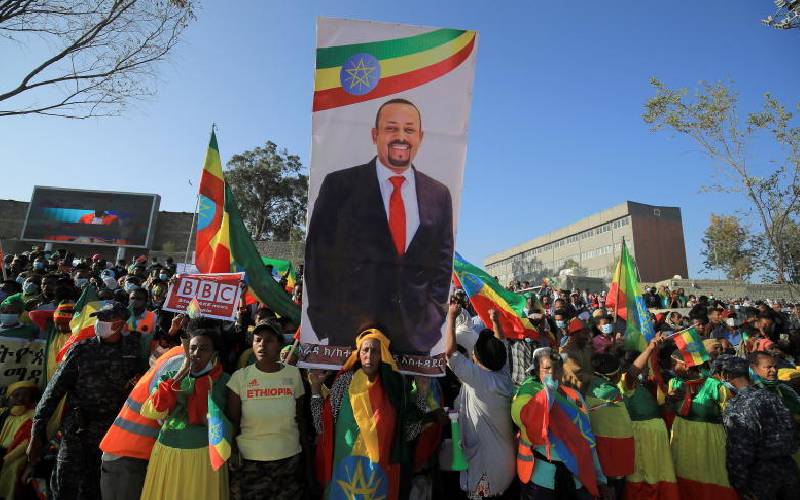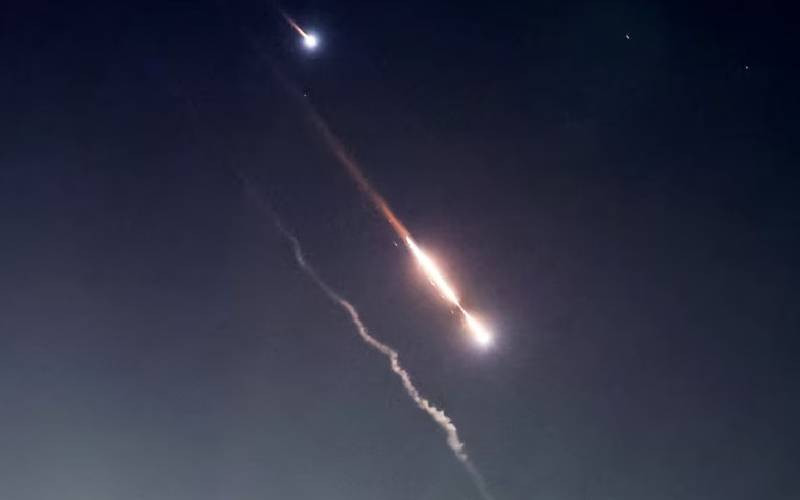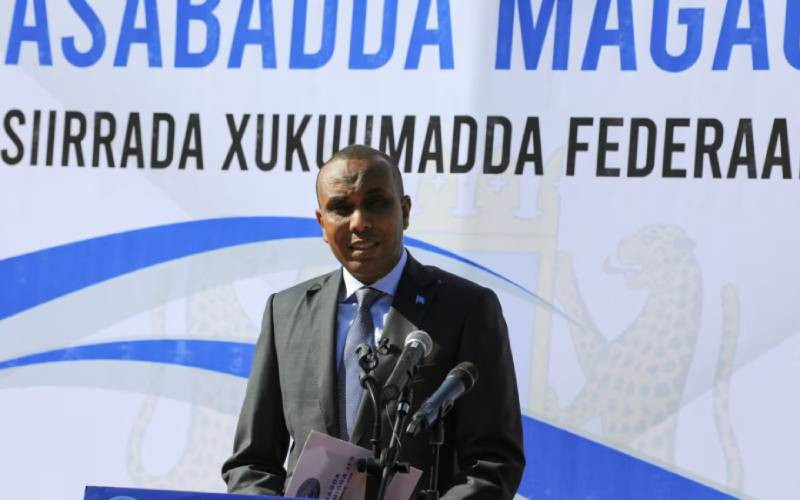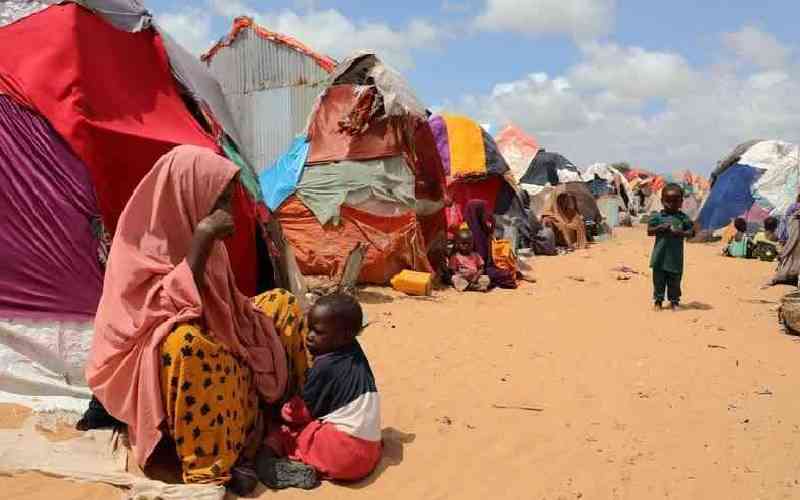
We flew through Addis Ababa Ethiopia last Sunday on our way from West Africa. We almost changed our flight plans going by the media reports.
Yet I never noticed anything unusual at the country’s main airport -Addis Ababa Bole International Airport, it looks very normal. Watching the news or listening to western media gives an impression the whole country is on fire.
Is that media neutral? What is really happening in Ethiopia and the Horn of Africa?
Former US President George Bush talked of the axis of evil in 2002. We can now talk of the axis of instability in the Horn of Africa involving Somalia, South Sudan, Sudan and now Ethiopia.
For Somalia, clan rivalry is well known. Somalia provides a case study of “looking for problems."
It’s one tribe but looked for clans “to cause division. Add al Shabaab and other militants and instability are real. The entry of the Kenyan military into the country in 2011 has somehow stabilised Somalia, piracy almost reduced to nil.
But Somalia is yet to become a modern nation.
In the axis of instability, external interference and internal contradictions drive instability.
For South Sudan, instability emerged as soon they separated from Sudan. The unity of purpose as they struggled from northern domination was replaced by tribal and political differences.
There have been no uhuru dividends despite having oil.
In Sudan itself; the army was too entrenched into the political system to leave power, after 30 years. But a determined civilian movement is standing in its way. When I visited Khartoum in 2013 and talked to taxi drivers, I felt something was wrong with that country. And it came to pass.
Now Ethiopia. The Tigreans were in power for almost 30 years like the army in Sudan. They suffer from “power hungover”.
They know how the government operates. That partly explains their success, particularly in media. They are portrayed as victims. What’s the truth?
Check the background to this crisis or talk to Ethiopians, please.
Stay informed. Subscribe to our newsletter
The constitution of Ethiopia allows secession and that’s why regions are so bold. They have a grudge against the central government which is often seen as not balancing the interests of the regions or favouring some.
Some say a young Prime Minister might not see the issues as the experienced one; he brought changes too fast.
But I think there are invisible hands. Who is providing the arms to the Tigreans? American envoy alluded to that. We can speculate who the invisible hands are. Who is unhappy with the building of the new Gibe Dam (Grand Renaissance Dam or Millennium Dam and sometimes referred to as Hidase Dam on the Blue Nile?
Ethiopia once occupied part of Somalia. Is Somalia now partisan in this row? On whose side? Do you recall Somali militants celebrating the fall of Kabul? Could they export their ideology?
Ethiopia has leaned towards China lately, with lots of Chinese supported projects. China even has a base at Djibouti, the port where most of Ethiopia imports and exports pass through. Is someone unhappy over that?
There could be others sources of arms; is Eritrea neutral? Who are the usual suspects in Libya and Sahel? This might not be farfetched - what of unstable Yemen across the Red Sea?
Who is fighting a proxy war there? Is the instability in the Middle East getting exported to the Horn of Africa? While internal contradictions are one cause of instability in the Horn and its contiguous States, external interference can’t be ruled out. Is a new Cold War finding a foothold in Africa?
Some observers are bolder, suggesting that the West might not mind dismembering Ethiopia to avenge for Italian defeat in 1896. Remember Eritrea and Djibouti were once part of Ethiopia. With secession allowed, it’s easy for external interference.
Dismembering Ethiopia is not a good option, it would make the Horn of Africa more unstable and spillover to neighbouring countries.
It could encourage other nations to split up too. Kenya should be concerned about this instability.
We have polls next year and have our regional grudges. We host refugees while terrorists could take advantage of this instability.
We share some ethnic groups with Ethiopia. This would make secession messier. Some silently say instability in the neighbouring countries brings money to Kenya. There are better options to get money into this country.
What’s the solution to the Ethiopian question? Should it be homegrown or externally imposed?
Dialogue can work but will other regions demand their “share “if Tigreans get their way? The central government might be tempted to include more Tigreans in the government.
An easier solution would be to let Tigreans vote for their regional government and recognise it with the condition they withdraw their forces back to Tigray. Are Tigreans threatening to match into Addis Ababa to strengthen their negotiation? Who would benefit from splitting Ethiopia?
Some observers note that the 27 years of Tigreans rule might save Ethiopia from disintegration. It’s not remembered with nostalgia.
That might unite Ethiopia. The memories of standing up against Italians might cement the spirit of unity.
But no matter the grudges, let us help our neighbour find peace and remain united. There is nothing romantic about dismembering such an old country. What is happening in Ethiopia, the land of the Queen of Sheba?
 The Standard Group Plc is a
multi-media organization with investments in media platforms spanning newspaper
print operations, television, radio broadcasting, digital and online services. The
Standard Group is recognized as a leading multi-media house in Kenya with a key
influence in matters of national and international interest.
The Standard Group Plc is a
multi-media organization with investments in media platforms spanning newspaper
print operations, television, radio broadcasting, digital and online services. The
Standard Group is recognized as a leading multi-media house in Kenya with a key
influence in matters of national and international interest.
 The Standard Group Plc is a
multi-media organization with investments in media platforms spanning newspaper
print operations, television, radio broadcasting, digital and online services. The
Standard Group is recognized as a leading multi-media house in Kenya with a key
influence in matters of national and international interest.
The Standard Group Plc is a
multi-media organization with investments in media platforms spanning newspaper
print operations, television, radio broadcasting, digital and online services. The
Standard Group is recognized as a leading multi-media house in Kenya with a key
influence in matters of national and international interest.










